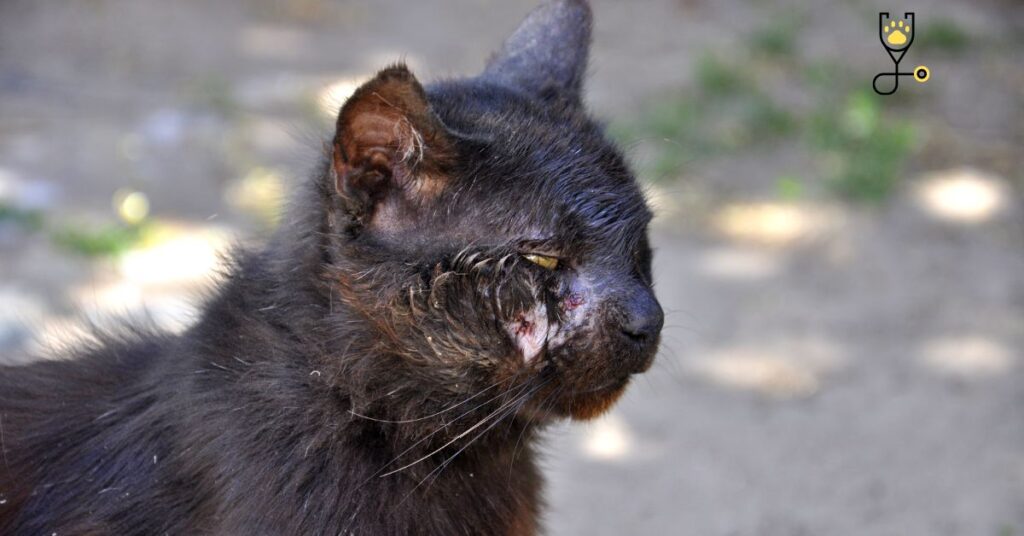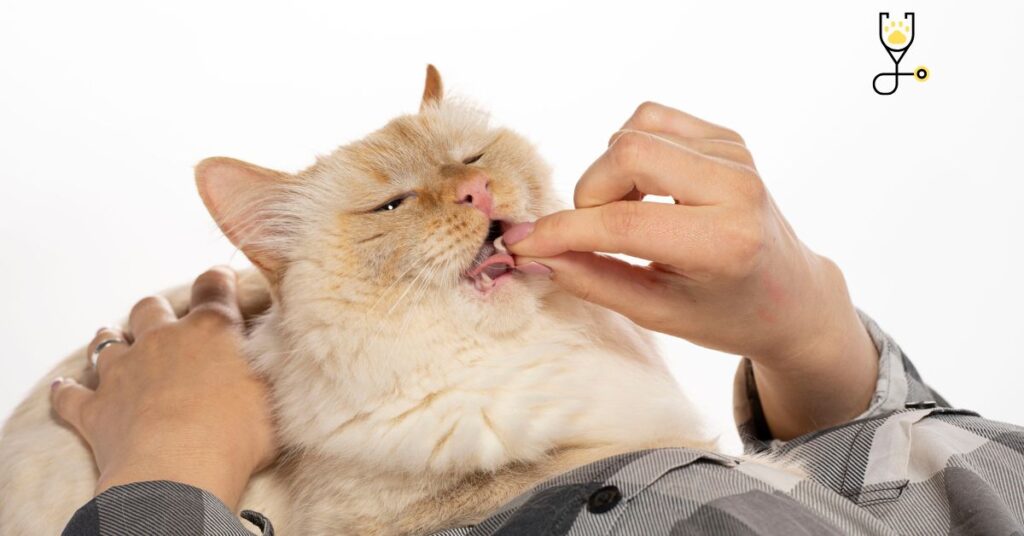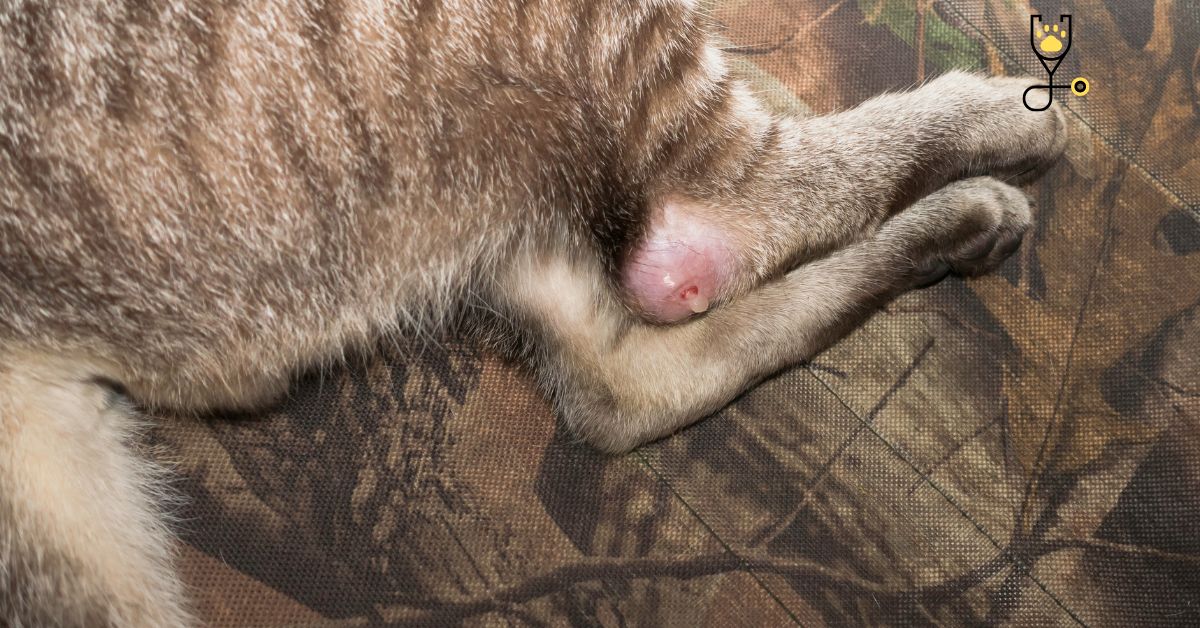If your cat has an abscess, it’s important to get them to a vet as soon as possible. However, there are some things you should know about abscesses in cats before rushing off to the emergency room. In this blog post, we’ll take a look at what abscesses are, what causes them, and how they’re treated. By the end, you’ll be equipped with the knowledge you need to make sure your cat gets the care they need.
What is an abscess?
An abscess is a pocket of pus that forms when bacteria or other foreign material gets into the body and the immune system responds. The infection causes the tissue around the bacteria to die, and as more tissue dies, the abscess grows larger. Eventually, the abscess will burst and release the pus.
- Cat reeds like the Devon Rex and Sphynx are especially prone to developing abscesses.
Symptoms of Abscesses in Cats

1. Swelling: The first symptom you’re likely to notice is swelling. This can be anywhere on the body but is often most noticeable on the head, neck, or back.
2. Pain: As the abscess grows, it puts pressure on surrounding tissues and can cause your cat a lot of pain.
3. Fever: If your cat has an abscess, it may also have a fever.
4. Loss of appetite: The pain and swelling associated with abscesses can make your cat lose their appetite.
5. lethargy: Feeling tired and sluggish is another common symptom of abscesses.
6. difficulty breathing: In some cases, the abscess can put pressure on the lungs and make it difficult for your cat to breathe. If you notice your cat laboring to breathe, it’s an emergency and you should take them to the vet immediately.
Causes of Abscesses in Cats
There are many different things that can cause an abscess in cats. Some of the most common causes include:
1. Bites: One of the most common causes of abscesses is bites from other animals. When an animal bites another, they often introduce bacteria into the wound. This can cause an abscess to form.
2. Infected wounds: Any kind of infected wound can lead to an abscess. This could be a wound from surgery, a fight with another animal, or even just a cut from playing.
3. Dental problems: Dental problems are another common cause of abscesses. If your cat has an infected tooth, it can lead to an abscess.
4. Tumors: In some cases, tumors can cause abscesses. This is more likely to be the case with cancerous tumors, but benign tumors can also cause abscesses.
5. Foreign bodies: If your cat inhales or swallows a foreign body, it can cause an abscess. This is more common in kittens, as they are more likely to put things in their mouths.
Treatments of Abscesses in Cats
The treatment for an abscess will depend on the cause and severity of the abscess. In some cases, the abscess may need to be drained and cleaned out. This is usually done with a needle and syringe. Your vet may also prescribe antibiotics to help clear the infection. In some cases, surgery may be necessary to remove the abscess.
If your cat has an abscess, it’s important to get them to a vet as soon as possible. The sooner you get treatment, the better the chances of a full recovery
- Antibiotics like amoxicillin are often used to treat abscesses.

Caring for Your Cat After Treatment
-Keep the area clean: Once the abscess is drained, it’s important to keep the area clean. This will help prevent infection and promote healing.
-Give the antibiotics time to work: It’s important to give your cat the full course of antibiotics, even if they seem to be feeling better. Stopping early can allow the infection to come back.
-Watch for signs of infection: Even after treatment, it’s important to watch for signs of infection. This includes swelling, redness, and discharge from the wound. If you notice any of these things, take your cat back to the vet.
-Preventative care: The best way to avoid abscesses is to practice good preventative care. This includes vaccinations, regular vet check-ups, and prompt treatment of any wounds.
Preventions of Abscesses in Cats
There are several things you can do to help prevent abscesses in cats. One of the most important things is to keep up with their vaccinations. This will help to reduce the risk of them getting bitten by another animal and developing an abscess. You should also keep an eye on any wounds they have and take them to the vet if they don’t seem to be healing properly.
Finally, good dental care can help to prevent abscesses. This means brushing their teeth regularly and taking them to the vet for dental check-ups.
Abscesses are a serious problem in cats and can be very painful. If you think your cat may have an abscess, it’s important to take them to the vet as soon as possible. With prompt treatment, most cats make a full recovery.
Conclusion
Abscesses are a serious problem in cats and can be very painful. If you think your cat may have an abscess, it’s important to take them to the vet as soon as possible. With prompt treatment, most cats make a full recovery.
Frequently Asked Questions
The best way to prevent abscesses is to practice good preventative care. This includes vaccinations, regular vet check-ups, and prompt treatment of any wounds. Good dental care can also help to prevent abscesses. This means brushing their teeth regularly and taking them to the vet for dental check-ups.
If your cat has an abscess, it’s important to get them to a vet as soon as possible. The sooner you get treatment, the better the chances of a full recovery.
The treatment for an abscess will depend on the cause and severity of the abscess. In some cases, the abscess may need to be drained and cleaned out. This is usually done with a needle and syringe. Your vet may also prescribe antibiotics to help clear the infection. In some cases, surgery may be necessary to remove the abscess.
There are several things that can cause abscesses in cats. These include bites from other animals, dental problems, and tumors.
An abscess is a pocket of pus that forms at the site of an infection. It can occur anywhere on the body but is most common on the head, neck, and shoulders.







